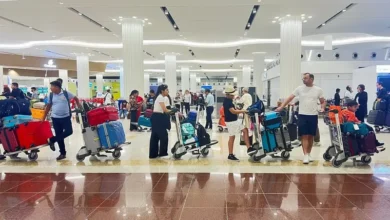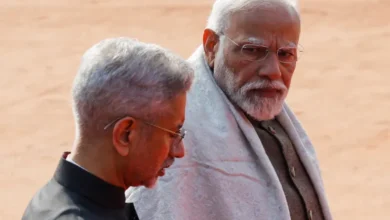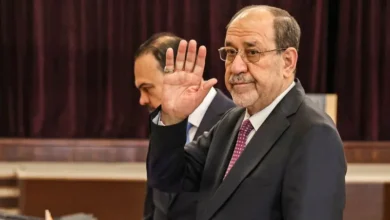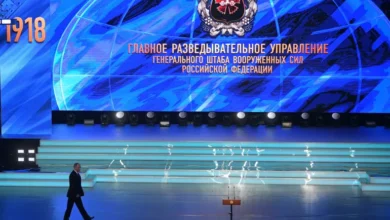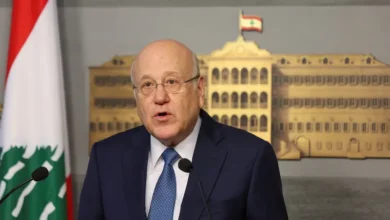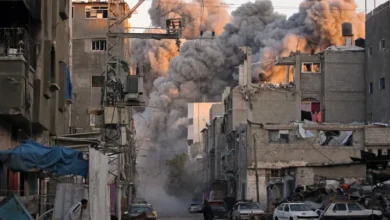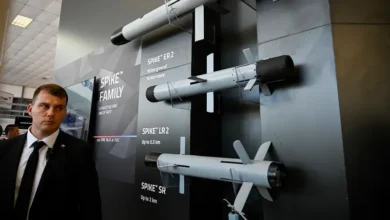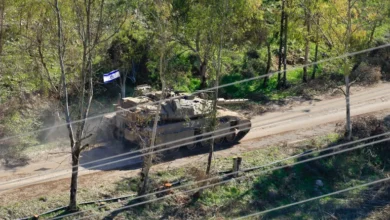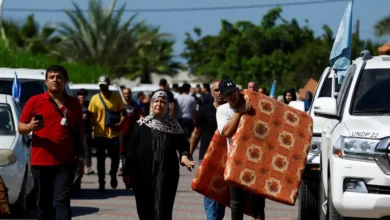Ukraine’s counter-offensive on track despite unprecedented Russian attacks: Official
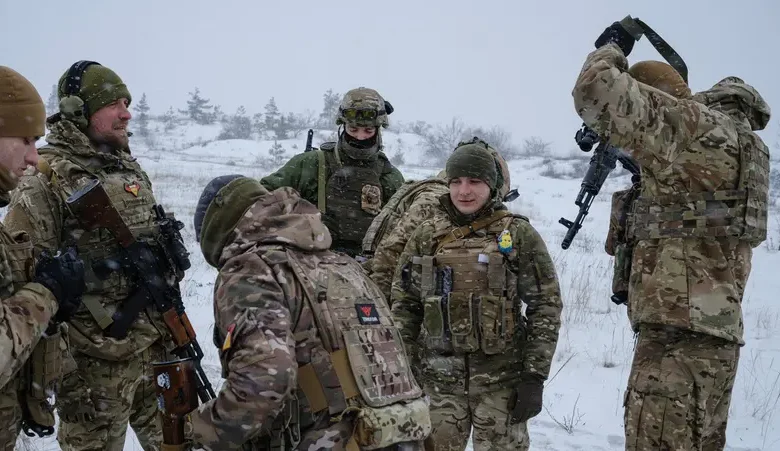
Ukraine’s plans for a counteroffensive against Russian occupation remain on track, its deputy defense minister told Reuters on Saturday, despite an “unprecedented” wave of missile and drone attacks across the country in recent weeks.
Volodymyr V. Havrylov said that alongside cruise missile strikes, Ukraine had faced repeated volleys of ballistic missiles in May, especially in urban centers including the capital, Kyiv.
“Their primary goal is to stop our counter-offensive and target decision-making centers,” he said on the sidelines of Asia’s top security conference, the Shangri-La Dialogue in Singapore.
Havrylov called Russia’s heavy use of ballistic missiles in May a “last strategic resort” and noted that his country’s air defense systems had been “more than 90 percent effective” against the attacks.
For Russia “it was a huge surprise to find that the effectiveness of (their ballistic missiles) was almost zero against modern air defense systems, which we received from our partners,” he said.
The United States and Germany provided Ukraine advanced Patriot missile batteries this year. Ukraine had already received advanced shorter-range systems such as NASAMS and IRIS-T from Western partners.
Ukrainian President Volodymyr Zelenskyy said on Saturday his country was ready to launch a much-awaited counter-offensive.
Havrylov said the missile barrages had not affected the timing.
“Nothing can stop our efforts, our desire, and our confidence that we’ll win this war,” he said.
Ukraine will “start the counter-offensive, with the ambition to liberate our territories this year,” he added.
Moscow calls the invasion, which began in February 2022, a “special operation.”
Havrylov declined to comment about recent drone attacks and border incursions into Russian territory, including some strikes that reached near Moscow.
“They (Russia) have a lot of internal events that are of course linked to this war,” he said. “We have a lot of people inside Russia who support Ukraine.”
The two countries have accused each other of spreading terror in their respective capitals with airstrikes.
Havrylov, who joined defense and military officials from all over the world at the Singapore meeting, said Ukraine expects NATO allies to provide a detailed roadmap to membership at the defense pact’s summit in Vilnius, Lithuania, next month.
“We want to see a clear… set of steps to be taken by both sides,” he said. “Not just an indication that the door is open.”
He added that Ukraine also expected guarantees of security to be provided while the country is in a “transition period” on the way to membership.
He dismissed a proposal by Indonesia’s defense minister at the Singapore meetings to establish a demilitarized zone to halt the fighting in Ukraine, saying: “We are not going to negotiate any deal related to loss of our territory, including Crimea.”
Havrylov praised the recent supply of British Storm Shadow cruise missiles, which British defense minister Ben Wallace said on Friday had not missed any targets Ukraine had attacked.
The addition of modern fighter aircraft such as F-16s would improve the country’s air defense capabilities, Havrylov said.
He said he could not comment on whether Ground-Launched Small Diameter Bomb, another long-range strike weapon Western allies have provided this year, had been used in combat yet.
Ukraine has had good meetings and discussions with many countries, including Asian nations, at the Shangri-La Dialogue, Havrylov said.
“We want to engage with everybody,” he said.
